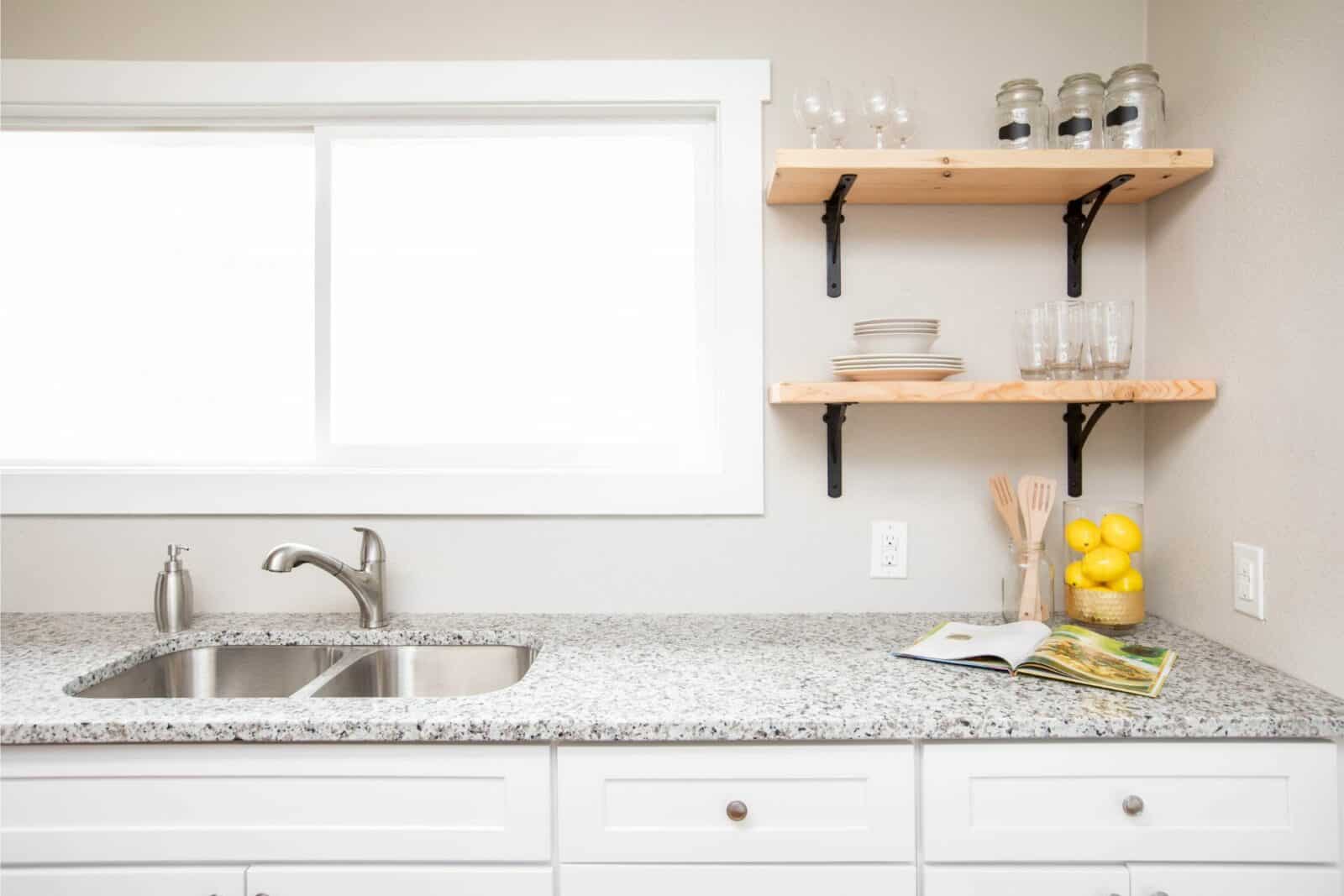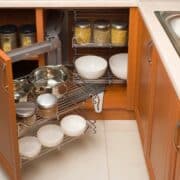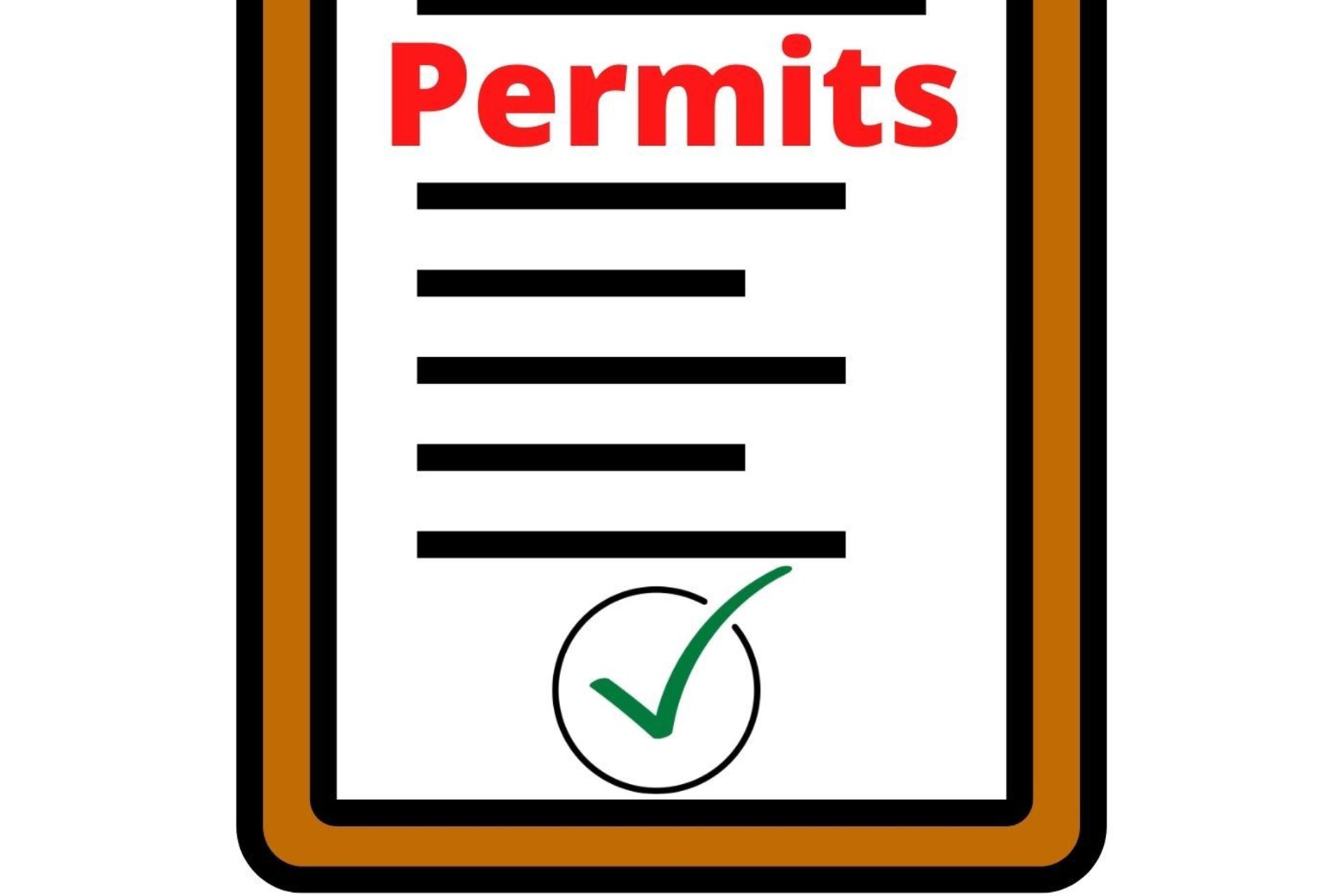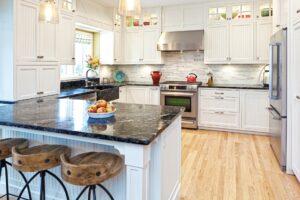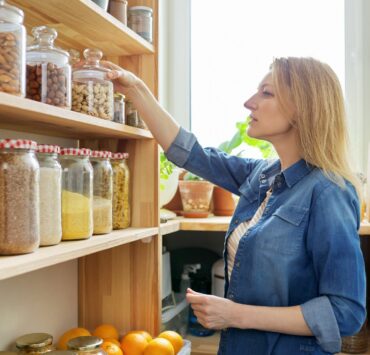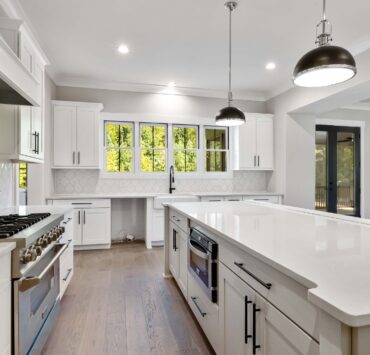Gone are the days when kitchens hid behind closed cabinets. Today’s trends lean towards open storage, and what better way to achieve that than with floating kitchen shelves? Not only do they offer a modern, airy look, but they also provide a platform to showcase your finest dishes, glasses, or even plant collection. And the best part? You can DIY it! Let’s dive in.
DIY Floating Kitchen Shelves: A Step-by-Step Guide
1. Gather Materials
- Wooden planks (length and width of your choice)
- Heavy-duty wall brackets
- Screws and anchors
- Power drill
- Level
- Stud finder
2. Measure & Mark
Decide where you’d like the shelves. Use a stud finder to locate wall studs and mark the locations. Ensure the marks are level.
3. Secure Brackets
Drill holes into the wall at your marked spots, ensuring you’re drilling into the studs. Insert wall anchors if necessary. Secure your brackets to the wall.
4. Place the Shelves
Lay the wooden planks on the brackets. Ensure they fit snugly and are level.
5. Secure the Shelves
Using screws, secure the wooden planks to the brackets.
6. Finishing Touches
Sand any rough edges. Consider staining or painting your shelves to match or contrast your kitchen decor.
Floating Shelves Ideas
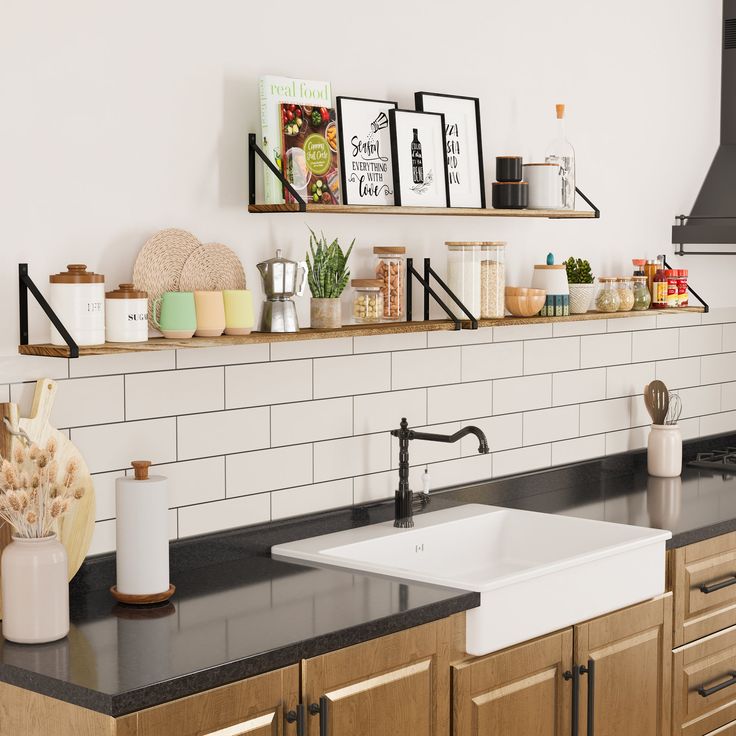
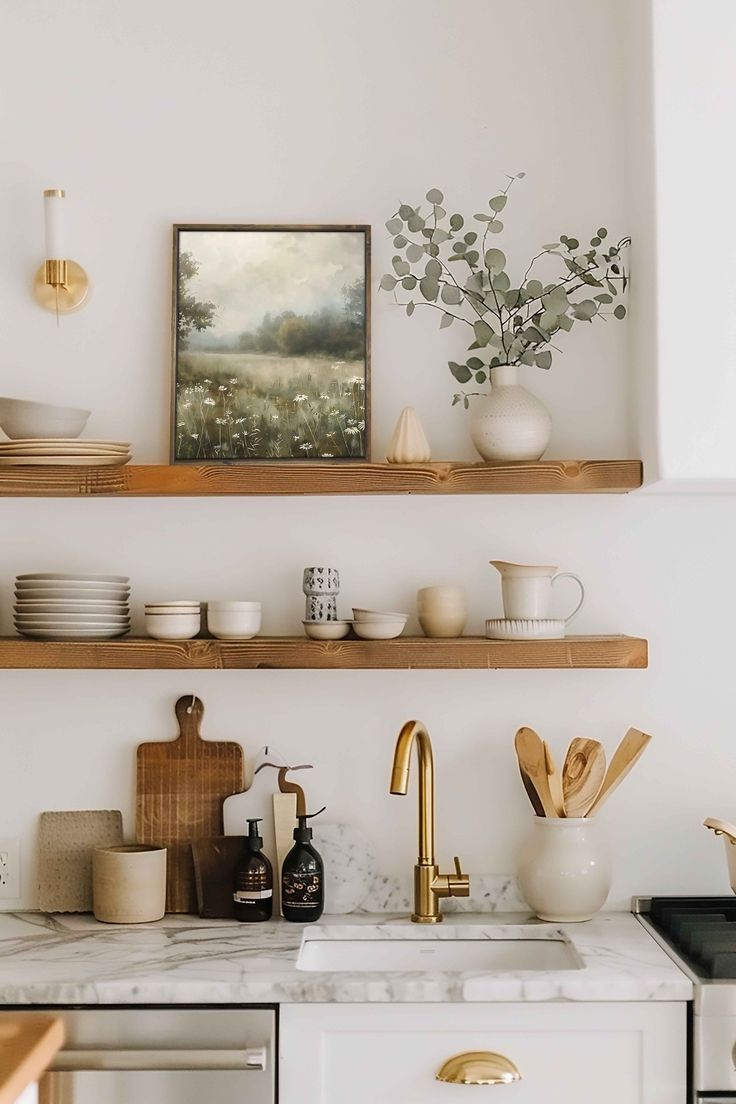
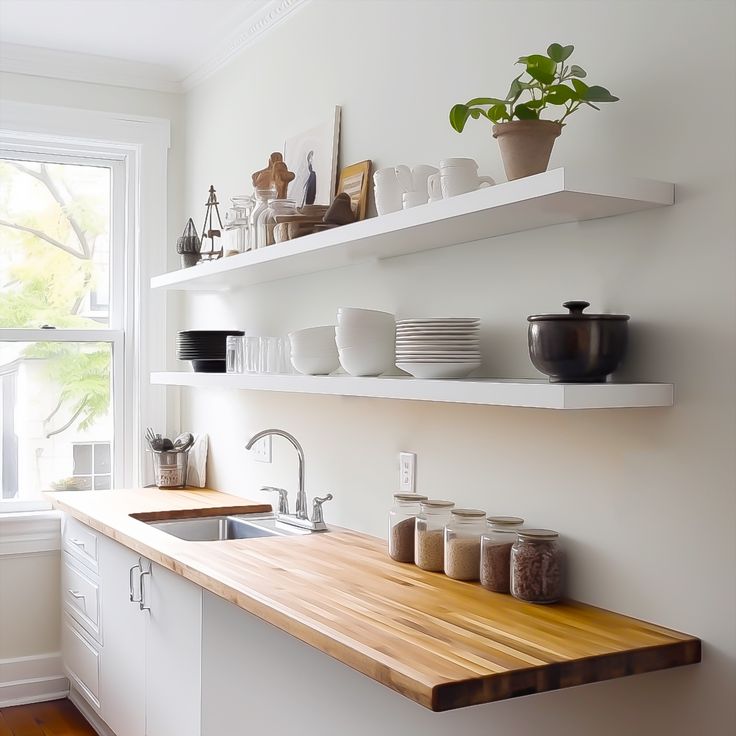
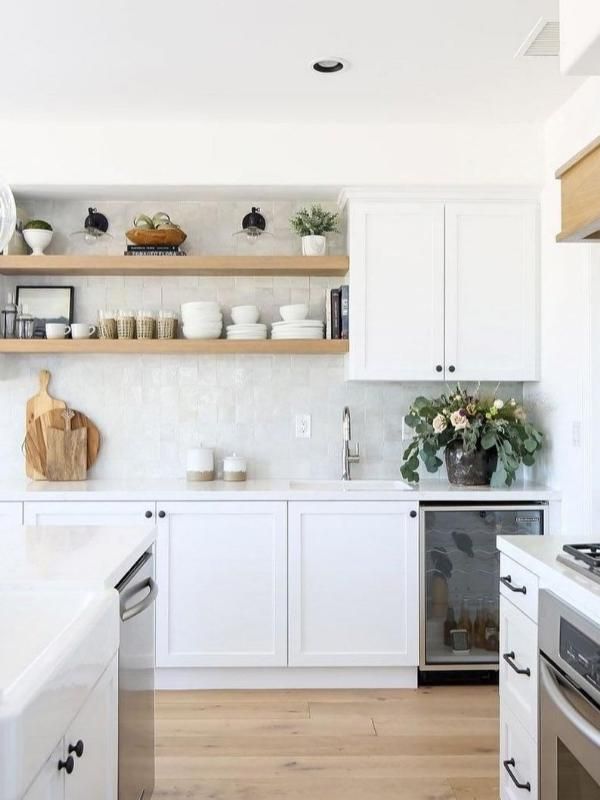
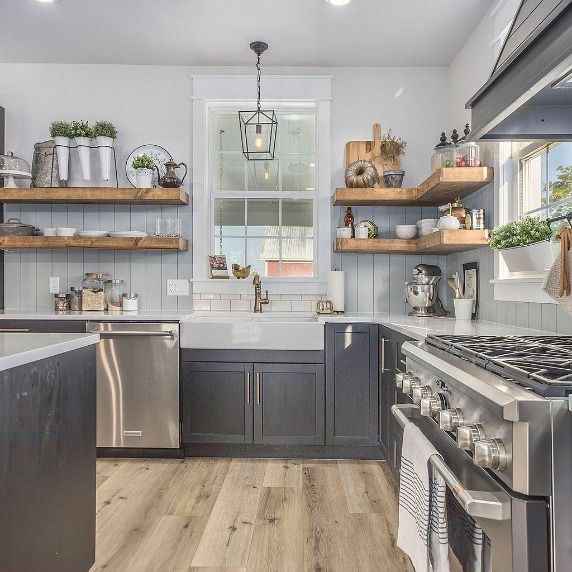
Styling Your Floating Shelves
- Balanced Display: Mix and match items like dishes, plants, and cookbooks.
- Pop of Color: Introduce colorful bowls or mugs.
- Functional Storage: Store frequently used items like spices or coffee mugs for easy access.
- Artistic Flare: Add some kitchen-themed art or decorative vases.
Benefits of Floating Kitchen Shelves
1. Modern Appeal
Their sleek design brings a contemporary flair to any kitchen.
2. Space Saver
Ideal for smaller kitchens, floating shelves eliminate the need for bulky cabinets.
3. Customization
DIY allows for tailored dimensions, colors, and styles.
4. Display Prowess
Flaunt your cherished kitchenware or heirloom dishes.
FAQs on DIY Floating Kitchen Shelves
How much weight can floating shelves support?
It largely depends on the material of the shelf, the strength of the brackets, and how they’re anchored to the wall. When properly installed into wall studs, they can typically hold 15-30 pounds per foot.
Can I use reclaimed wood for my shelves?
Absolutely! Reclaimed wood can add a rustic touch and is an eco-friendly option. Ensure it’s cleaned, sanded, and treated appropriately.
How do I maintain my floating shelves?
Regularly dust them and avoid overloading. If they’re in a spot prone to grease (near the stove), wipe them down periodically.
Crafting DIY floating kitchen shelves is a delightful blend of functionality and aesthetics. It’s a testament to the fact that with a little creativity, some tools, and a dash of effort, you can transform any space, making it both efficient and stylish.
